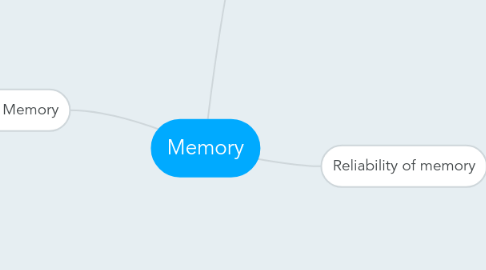
1. Collective Memory
1.1. History is composed of the collective memories' of society's members.
1.1.1. Although individual people's experiences will most likely differ, we can make a conclusion and reduce error on a historical judgement by looking at the memories and testimonies of many people.
1.1.2. Although collective judgements are undoubtedly important, the emotions and personal thoughts associated with individual memories must still be considered in order to truly understand history
1.1.3. Bias can also shape our idea of history. We can interpret the memories and experiences of society in different ways.
2. Types of Memory
2.1. Procedural Memory-Skills and information that is instinctive and does not need to be actively recalled
2.2. Declarative Memory- Facts and Memory that need to be consciously recalled
3. Reliability of memory
3.1. There are many factors that affect memories that we store.
3.1.1. Hindsight Bias-When we remember our responses to previous events differently from how they actually happened
3.1.2. Consistency Bias-When we modify our memories to match our present values and ideals
3.1.3. Availability Heuristic-Similar to confirmation bias. When we judge how likely something is to happen based on how easily we can remember examples of it.
3.1.4. Memories can be created entirely from past experiences, even if they had never even happened. This is particularly common with very emotional, tragic, or otherwise memorable events
3.1.4.1. These created "memories" can be a result of suggestion by other people, such as therapists
3.2. Governments have ruled that:"Memory is not a reliable record of the past"
3.2.1. State vs. Henderson(2008)
3.3. Forgetting, includes memory decay along with previously mentioned biases
3.3.1. Although we commonly perceive forgetting things as negative, it has many positive effects.
3.3.1.1. Forgetting things clears out our memory of frivolous things, allowing us to focus more on things that are actually important. In this sense, "forgetting" is actually an important vital function.
3.3.1.2. Forgetting helps us to move past tragic or painful events
3.3.2. There are many factors that affect how well we remember memories
3.3.2.1. Physical proximity and emotional relevance heavily affect how vivid a memory is in our mind
3.3.2.2. Emotions attached to memory are generally extremely vivid. Facts can completely disappear from memory, whereas the associated emotions can be remembered for a lifetime.

